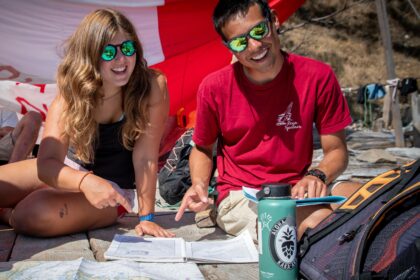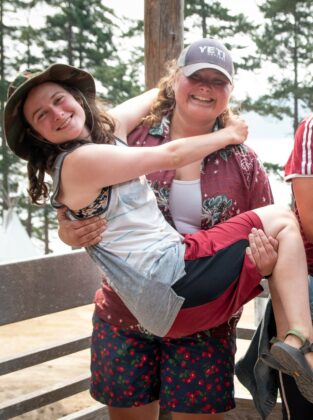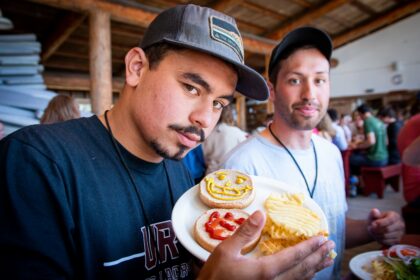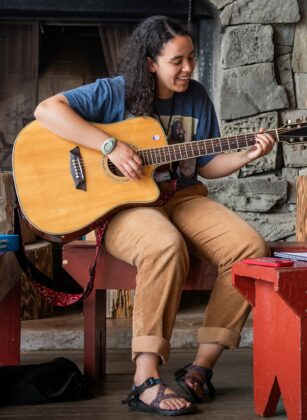2024 Contract Dates
All staff contracts run for approximately 10 weeks, from mid-June through late August.
| Position Type | Contract Dates |
|---|---|
| Kitchen Manager, Head Cook, Leadership Team, and Ropes Team | June 7 through Aug 22 |
| Supervisors, International Staff, Camp Operations, and Kitchen Team | June 10 through Aug 22 |
| All Other Staff | June 11 through Aug 22 |
Some part-summer contracts are available for First Session (June 11 through July 20) or Second Session (July 18 through Aug 22).
**Hiring Update 3/13/24**: At this time, we are only accepting First-Session-only applications for Kitchen Team and Nurses. Please see the Summer Staff Positions page for more updates on specific positions we are hiring for or email Program Director Harper McFadden at harper@norwester.org with any questions.
2024 Compensation Schedule:
| Program & Unit Staff | Supervisory Team | Leadership Team |
|---|---|---|
| Department, Relief, & Support Staff – $4,000 | Ropes & Camp Operations Directors – $4,200 | Scheduler & Mental Health Support Coordinator – $4,500 |
| Trip Leaders – $4,200 | Craft Shop & Waterfront Directors – $4,400 | Asst. Program Director & Trip & Overnight Coordinator – $4,700 |
| Unit Leaders & Small Department Heads – $4,200 | Unit Mentors – $4,200 | Unit Directors – $4,700 |
Special Contract Positions include Kitchen Manager, Head Cook, and Nurses. Please contact Operations Director Jill Steigerwald at jill@norwester.org with questions.
Frequently Asked Questions
Besides my salary, what are the benefits of working for Camp Nor’wester?
 We expect that all of our staff take the opportunity to positively impact children in an outdoor setting seriously. Working with children at camp will lead to your own personal growth – build your confidence, better knowledge of outdoor skills, experience in conflict mediation/resolution, experience in designing or building a program (within your department or for your camper unit), peer communication, community building, giving and receiving feedback, develop your leadership skills, and more.
We expect that all of our staff take the opportunity to positively impact children in an outdoor setting seriously. Working with children at camp will lead to your own personal growth – build your confidence, better knowledge of outdoor skills, experience in conflict mediation/resolution, experience in designing or building a program (within your department or for your camper unit), peer communication, community building, giving and receiving feedback, develop your leadership skills, and more.
The Nor’wester community is deep and strong – with over 80 years of offering camp experiences for children, the alumni network is very rich. Nor’wester connections are made all over the world and can often lead to further employment and enrichment opportunities beyond camp.
We provide coaching and resources for staff on how to describe the work experience you gain at Camp on resumes and cover letters, so you can showcase the skills you built and apply those to your next job. Employers these days are looking for critical-thinkers, problem-solvers, and leaders – all skills you will work on at Camp!
Staff also have access to Dear Scout, a mental health support program including therapy sessions if needed. Camp gives one round-trip shuttle ticket to staff for each of their Time-Off periods, useable between Roche Harbor and Friday Harbor. We also have pro-deal accounts with certain retailers, including Chaco and Big Agnes that staff can access. Finally, staff can do their laundry for free on property, and they are provided additional stipends for certifications, travel to Camp, referrals, and more.
What certifications do I need to work at camp?
All staff are required to hold current certifications in First Aid and CPR, from either American Red Cross or American Heart Association.
Unit Leaders and Relief Staff are required to be either Wilderness First Aid or Lifeguard certified.
Waterfront Staff must be Lifeguard certified.
Trip Leaders must have at least a current Wilderness First Aid certification (Wilderness First Responder preferred).
No exceptions. Courses are provided by Camp at the beginning of Staff Training, but staff are encouraged to pursue courses ahead of arriving to Camp. Besides that, we do encourage all staff to consider advanced certifications like Wilderness First Aid or Lifeguarding, and we offer pre-camp trainings in WFA and WLGT to help support staff in getting them. Wilderness First Responder is also a great course, especially for those likely going on trips. Staff with “advanced” trainings beyond First Aid and CPR receive a stipend, depending on the certification type.
Keep in mind almost all courses expire after two years – check your certification and expiration dates to be sure you have a current certification.
How much training do I get before the campers arrive?
 We have a 10+ day Staff Training prior to campers arriving. A large part of the time is spent in seminars and practice sessions, where staff members receive information on camp policies and practices as well as get practical training in emergency response, age group characteristics, and conflict resolution. Department staff will be evaluated on their respective skills and Unit Staff will receive in-depth training on group management. In addition, the time is used to set up camp, get departments ready, and get supplies and equipment out of storage. Community development within the staff is also a large focus, including compassionate communication practice and giving feedback, so we all know each other and are ready to welcome campers on a similar foundation of understanding of the philosophies and values of Nor’wester.
We have a 10+ day Staff Training prior to campers arriving. A large part of the time is spent in seminars and practice sessions, where staff members receive information on camp policies and practices as well as get practical training in emergency response, age group characteristics, and conflict resolution. Department staff will be evaluated on their respective skills and Unit Staff will receive in-depth training on group management. In addition, the time is used to set up camp, get departments ready, and get supplies and equipment out of storage. Community development within the staff is also a large focus, including compassionate communication practice and giving feedback, so we all know each other and are ready to welcome campers on a similar foundation of understanding of the philosophies and values of Nor’wester.
Where exactly is the property located?
We are located in the San Juan Archipelago in Washington State. The islands are approximately 70 miles north of Seattle. Johns Island is a small non-ferry served island on the western edge of the Archipelago, just east of Stuart Island and north of Spieden Island. On a mapping search engine like Google Maps, search for “Johns Island, Washington”. Scroll in and out to see where the San Juan Islands are located in relation to Seattle. Johns Island is 3.5 miles north of Roche Harbor, next to Stuart Island.
Where do most campers and staff come from?
About 50% of our campers come from Washington State, 20% from Oregon, 15% from California with the remainder coming from across the United States and international countries.
Staff members are more diverse geographically. Many past campers who return as staff will come from Washington, Oregon, and other parts of the west coast, but we hire staff from all over the country and usually 15 or more International Staff each year.
What does a typical day look like?
 In general, the day begins at around 7:00am and ends around 10:00pm. Everyone comes to breakfast at 8:00am and morning activities start at 10:00am. There are two one-hour activity periods in the morning, lunch at 12:30, a rest period from 1:30ish to 2:30, followed by either 3 one-hour, or 2 ninety-minute activity periods. Dinner is at 6:00pm and evening activities begin around 7:30pm.
In general, the day begins at around 7:00am and ends around 10:00pm. Everyone comes to breakfast at 8:00am and morning activities start at 10:00am. There are two one-hour activity periods in the morning, lunch at 12:30, a rest period from 1:30ish to 2:30, followed by either 3 one-hour, or 2 ninety-minute activity periods. Dinner is at 6:00pm and evening activities begin around 7:30pm.
Unit Leaders attend daytime activities with their unit, while Department Staff provide instruction to the various units coming to their department. All staff help with supervision at meal times, and evening activities are supervised by a combination of Unit and Department Staff, as assigned by the Head Counselors.
How should I plan to get to camp? Do I need to bring a car?
Whether you’re flying from across the country or driving up from Seattle, all staff are responsible for getting to the Anacortes Ferry Terminal in time to board the designated ferry specified by the camp office on your contract start date. There will likely be other staff (new and returning) on that same ferry, carrying their trunks and luggage with them. We try to help people connect ahead of time to make carpool plans – use the pre-summer staff forums for this.
Once the ferry reaches Friday Harbor, staff drivers will head up to Roche in time to unload, park and meet the barge to camp. Walk-on passengers (who do not have a seat in a vehicle already) will be met by a camp representative at the ferry terminal and will ride in a camp van to Roche. Then we all get on the barge for the 30-minute ride to camp!
Typically less than 30% of staff bring cars to camp. If you do, you’ll be parking your car for the summer at Roche Harbor, on the north end of San Juan Island, since the camp property is only accessible by boat. On time-off, you can use your car to get around San Juan, and everyone is willing to give others a ride to and from town. There is a free parking lot just over a mile walk from Roche Harbor, or staff can pay for parking (arranged directly with Roche Harbor, not through Camp).
What about Time Off?
 Working at camp 24/7 is a very demanding effort that requires a lot from all of us. We recognize this and ask you to do so before committing to a summer of employment. All staff receive 72 hours of time off (three 24-hour periods) during both camper sessions. Changeover is a 48-hour period of time off (off-property) between the sessions. Each staff member also has at least a two-hour break period each workday. In addition, there is a schedule of supervisory duties for each staff living in a unit, to cover rest-hours (after lunch) and night time supervision each day. The frequency of these duties depends on your position, but you will cover a few each, each week.
Working at camp 24/7 is a very demanding effort that requires a lot from all of us. We recognize this and ask you to do so before committing to a summer of employment. All staff receive 72 hours of time off (three 24-hour periods) during both camper sessions. Changeover is a 48-hour period of time off (off-property) between the sessions. Each staff member also has at least a two-hour break period each workday. In addition, there is a schedule of supervisory duties for each staff living in a unit, to cover rest-hours (after lunch) and night time supervision each day. The frequency of these duties depends on your position, but you will cover a few each, each week.
Off-property time off typically means taking a boat shuttle driven by our skippers from Johns to Roche Harbor and staying on San Juan Island overnight. You may choose to stay or return to property on the evening boat, if the schedule allows, but most staff will spend the majority of their time off on San Juan. Staff share rides to and from town, and the hitchhiking culture is pretty developed and safe in the islands. You will almost never be on time off alone, so there will always be someone else to connect with. Visit Friday Harbor, buy some “necessary” treats at the grocery store, see a movie or spend the afternoon on one of the island’s beautiful beaches. There are tons of great restaurants around town. Most staff will plan to camp together for the night, or perhaps reserve a hotel room with a few friends. We hope time off is helpful to you – mentally and physically – so that you can return to camp ready to be back “on” with campers. We are also happy to offer tickets for the shuttle service on San Juan Island through San Juan Transit to staff for use during their time off-island. We cover one round-trip ticket per TO block per staff member.
Each regular program day at Camp, staff will also have a 1.5 hour non-camper-facing break. This can be used for personal needs such as laundry, hygiene, calling home, napping, or might be a good time to catch up on any assigned tasks you haven’t had time for.
What will living accommodations be like? Will I have access to laundry facilities on the island?
One of the best perks at Nor’wester is getting to live outdoors! All staff will be assigned to live with one of the camper units, and will have supervisory duties to that unit from time to time. Most staff live three or four to a tipi or tent, and there are usually two staff structures in each unit, so five-seven total staff. You will have your own bed frame, mattress and mattress cover provided, and you are responsible for your own linens. Most staff use their sleeping bags; some bring a fitted sheet or light blankets to make it a bit more “homey.” Weather is pretty moderate in the San Juans in the summer overall – temps cooler in June but warm up to the 80s daily in July and August. We all arrange our belongings differently – some keep everything in their trunks, others build shelves or hang items with hangers or fabric closet organizers. Again, use the pre-summer staff forums for suggestions.
Laundry facilities are available on island – there is no charge, but we all must use and respect the Laundry room under the same guidelines: respect the line, your parent doesn’t work here, please consider helping out a co-worker by moving their laundry through and good karma is earned by taking time to sweep the floor! Staff are expected to do their laundry in their “free” times, and usually we all help each other out and move things through so you might be surprised with a clean and folded load when you get back.
Our entire community at Camp Nor’wester has the rare and beautiful opportunity to live in tipis and platform tents each summer. Tipis have been the living structure most associated with camp since its inception in 1935.
Why do we live in tipis?
- We love being close to nature, with the bare earth beneath our feet and the sun filtering through the canvas.
- Living in tipis together helps to promote engagement between campers and staff on a more intimate level, resulting in deepened friendships and heightened awareness regarding community living.
- The sturdy structure of a tipi and its conical shape withstand wind and rain yet allow air to move through, helping us immerse in nature with humble respect.
- We utilize our resources on camp land to make poles and have the ability to place tipis in precarious places that otherwise would not accommodate a living structure.
- We strive to live light on the land and we allow the property to go back to its natural state for nine months before setting up tipis once again. This cycle also allows for flexibility in placement, fluidity in programming and an honoring of the land.
We acknowledge, with full transparency, that tipi structures originated in the Great Plains region of the United States and Canada within the Plains Native Culture. Nor’wester does not have an authentic connection or tie to this culture, so we are currently in discussion about what it means for us to continue our tradition of living in tipis. We are striving to educate our community and choose to continue to move into the future with sensitivity, compassion and intention around all things we do.
We acknowledge that there is a fine line between cultural appreciation and appropriation. Our C5 Board Committee (Creating Cultural Competence in our Camp Community) and members of camp leadership are dedicated to continued conversation about this topic and seek to understand all voices in the community as well as societal and cultural observations from outside the community.
We acknowledge that Camp Nor’wester’s love of indigenous culture over the years has solidified tipis as part of our story and sense of place since 1935. This love and appreciation also means that we may need to let go of some things that have been a tradition in our community in order to stay consistent with our values, acting in the utmost integrity as we move into our sustainable future.
Is there phone or internet access on property?
Being in such a remote location, there is very limited cell phone service on Johns, although it is growing. Since we have a strict no-technology policy for campers, staff are not allowed to use their personal cell phones or electronic devices in front of campers or while on duty except in cases of emergency or with express permission of the Directors. During free times, there are spots on the island away from main camp where staff do pick up service, however for the most part staff wait until TO to call friends and family. There is an office phone available to staff after dinner when not on duty if needed, and we can often set up a time for a job/school related call during the day on a case-by-case basis.
Staff can also access the internet via one of our staff computers in the office when off-duty. Our satellite internet service is limited, so we have for a 10-minute limit, especially when others are waiting. Again, we can set up a specific time for you to use a computer for job/school related needs.
Many businesses in Friday Harbor have free Wi-Fi and the Library is open most days of the week for staff on time-off.
Staff Testimonials
When I attended the camp over many summers, I realized this was the community of people I wanted to put myself in. The atmosphere of the camp always brings a smile to my face, and happy thoughts to my mind. Working long hours with people you love being around, laughing and singing isn’t work in my eyes, it’s an experience that you can’t find anywhere else.
Camp Nor’wester is the best place that I have ever worked. This isn’t because of the job (although that was fun, too) but because of the openness, support, and just general kindness/respect given to you by the staff team.
Spending three months outside, sleeping in a tipi and sharing what I love most with others is worth little pay and long hours. There are so many in our world today who don’t understand what being outdoors can do to a person. Outdoors we are our most real and authentic selves. From this place of honesty there can be so much change and growth.

